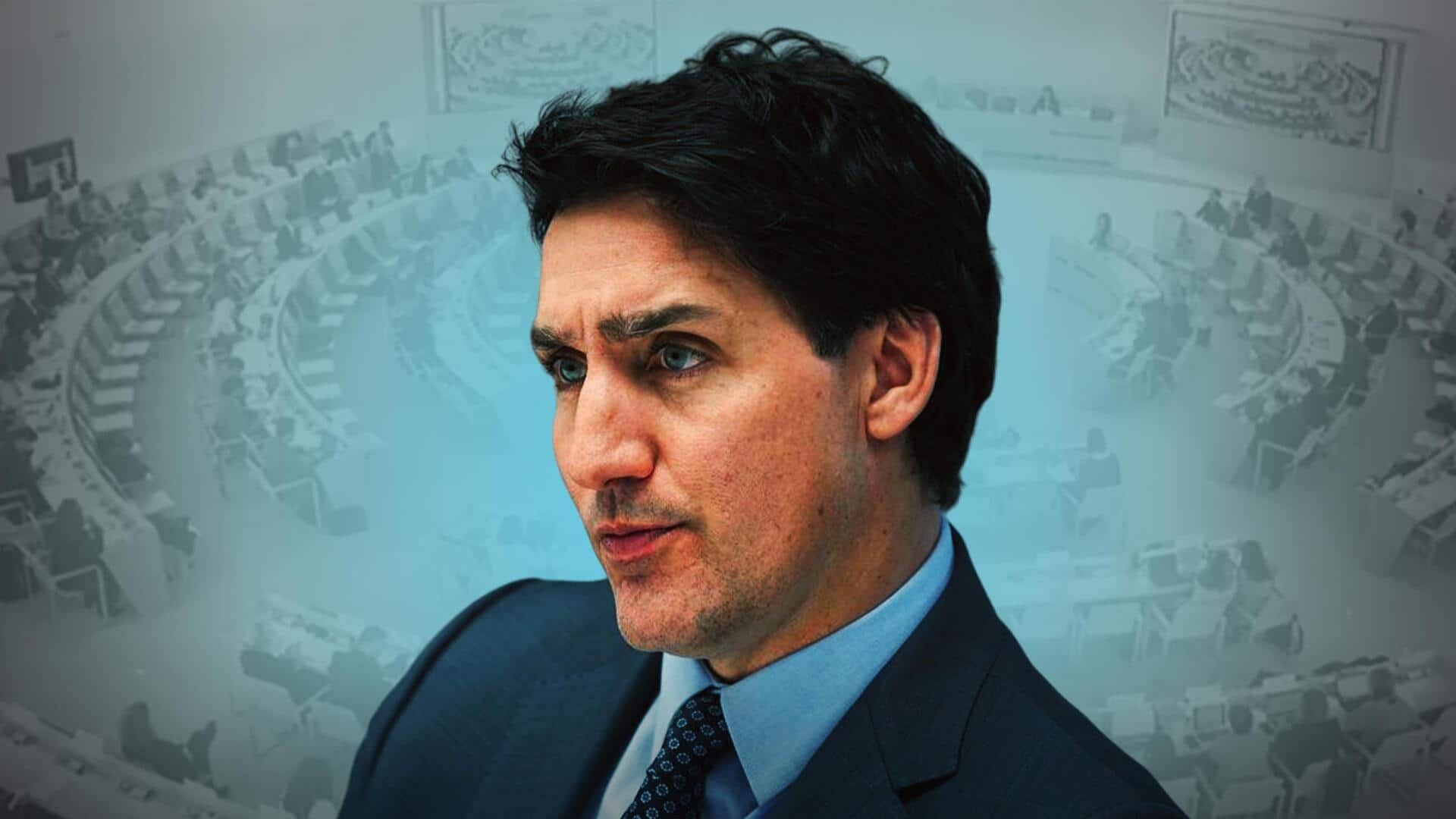
At UNHRC meeting, India asks Canada to address hate crimes
What's the story
In a significant diplomatic move, India has spearheaded recommendations for Canada at the United Nations Human Rights Council (UNHRC) to bolster its legal framework to prevent attacks on worship places and address hate crimes more effectively. Addressing a UNHRC Review meeting, Indian diplomat KS Mohammed Hussain highlighted Canada's legislative actions like the National Housing Strategy Act and the Accessible Canada Act while discussing the issue. Besides India, diplomats from Bangladesh and Sri Lanka offered their insights and recommendations to Canada.
Context
Why does this story matter?
This development comes at a time when the ties between India and Canada are strained over the murder of Khalistani terrorist Hardeep Singh Nijjar in June on Canadian soil. In September, Canadian Prime Minister Justin Trudeau accused India of orchestrating Nijjar's assassination in British Columbia and expelled an Indian diplomat, worsening diplomatic ties. On Sunday, Trudeau once again reiterated this claim and denounced the Indian government's move to expel 41 Canadian diplomats last month.
Statement
Take action against extremism, misuse of freedom of expression: Hussain
Hussain, first secretary of the Permanent Mission of India at the UN, said, "India recommends...Canada...to further strengthen the domestic framework to prevent misuse of freedom of expression for inciting violence and disallow activities of groups...promoting extremism." He also urged Canada to prevent attacks on places of worship of minorities and prevent hate crimes. This came during a meeting in Geneva where Canada's human rights records were examined for the fourth time by the UNHRC's Universal Periodic Review (UPR) Working Group.
Details
India urges Canada to stop discrimination against indigenous children
India also advised Canada to eliminate "structural discrimination against children belonging to indigenous groups" and address disparities in services accessibility for all children. This advice followed a UN report that condemned Canada for alleged "modern slavery" within its foreign worker programs, calling on authorities to protect workers, combat discrimination, and provide a transparent route to permanent residency for migrants. It also described such Canadian programs as a "breeding ground for contemporary forms of slavery."
What Next?
Bangladesh asks Canada to stop discrimination against migrant workers
Meanwhile, Bangladesh also took part in the review and urged Canada to combat racism, hate speech, and discrimination. Bangladeshi diplomat Abdullah Al Forhad praised Canada's advancements in human rights protection and strategies to combat human trafficking. However, he encouraged it to ramp up its efforts against the aforementioned issues, especially those faced by migrants and Muslim minorities. Al Forhad also advocated for measures to lower carbon emissions, tackle climate change, and ratify the global convention on migrants' rights protection.
Insights
Sri Lanka called for countering misinformation, strengthening legal framework
Sri Lankan diplomat Thilini Jayasekara also called on Canada to join the Convention on the Protection of Rights of All Migrant Workers, take appropriate action to fight racial discrimination against immigrants' rights, and counter misinformation targeting minorities. He added Canada should strengthen its mechanism for the comprehensive reporting of these issues and follow-up on international human rights recommendations. Jayasekara, however, expressed gratitude for Canada's collaboration during the UN Special Rapporteurs' visits concerning contemporary forms of slavery and indigenous peoples' rights.